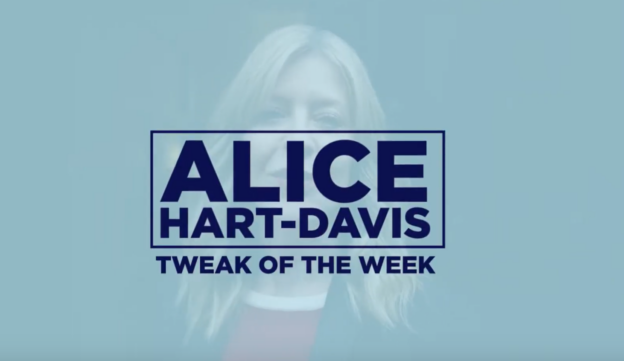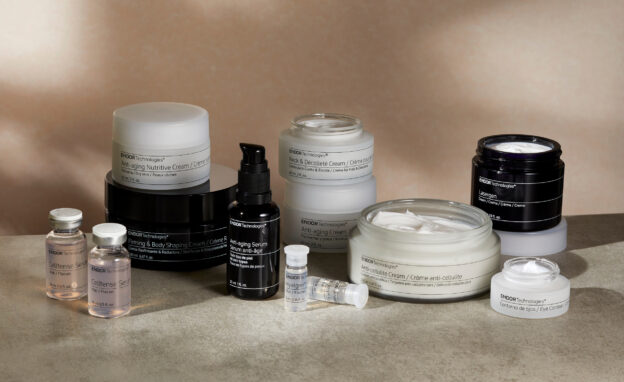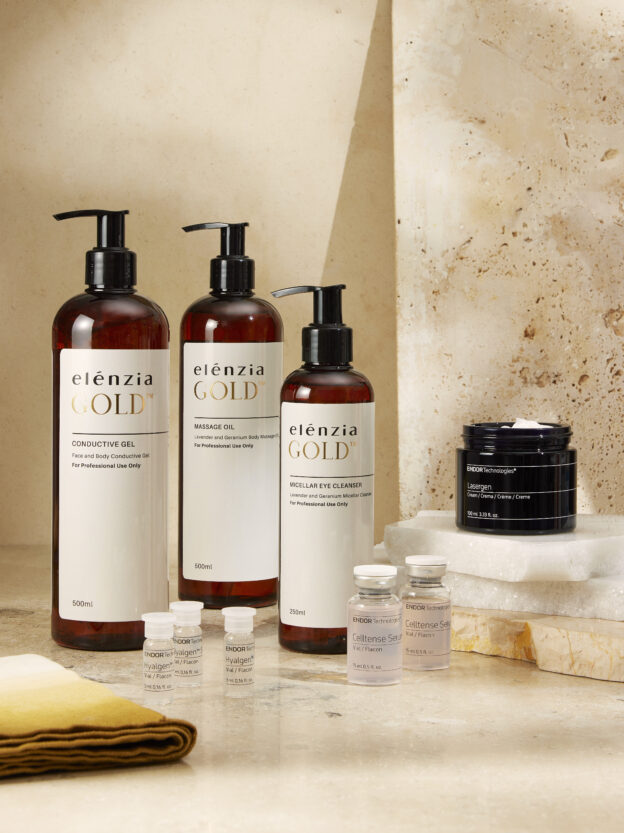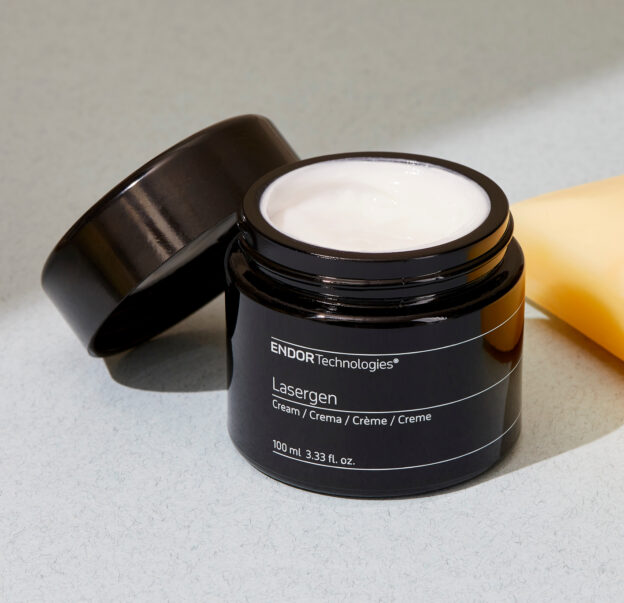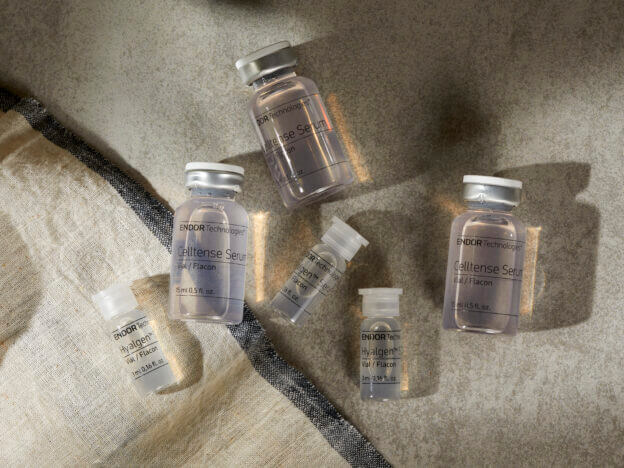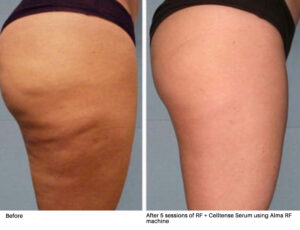Combination treatments in the aesthetics industry are an ongoing trend in order to achieve the best results for clients with a range of non-invasive procedures. From fat and cellulite reduction to anti-ageing and acne scarring, combination treatments are fast becoming the norm for aesthetic clinics to be able to provide their clients with the most innovative technology that the industry has to offer. Providing medical professionals with innovative, highly efficacious treatment tools is a goal that the Endor Technologies professional skincare range aims to achieve. Using the Celltense and Hyalgen serums by Endor Technologies as a combination treatment enhances a range of aesthetic procedures such as microneedling and plasma pen, and they are clinically proven to improve radio frequency treatments making them 18 times more effective. Along with the serums, we are excited to introduce a new product to the Endor Technologies professional range – Lasergen. When used in combination with ablative laser treatments for acne scarring and anti-ageing, Lasergen is clinically proven to enhance treatment results and reduce unavoidable side effects, using Endor Technologies innovative patented nano gold technology.
What is Lasergen?
Lasergen is an aftercare cream mask to be provided to clients exclusively by aesthetic professionals after ablative laser treatments for acne scarring or anti-ageing. There are few products currently on the market that target all aspects of skincare for post ablative laser treatments, such as speeding up the skin regeneration process whilst hydrating and soothing redness and irritation. Not only does Lasergen cover both aspects, it is also clinically proven to enhance the finished results of ablative laser treatments by reducing redness and irritation by 5%, further reducing acne scarring by 8.5% and reducing hyperpigmentation by 32% versus the current market gold standard product. Hyperpigmentation caused by ablative laser treatments is currently an untreatable side effect of the procedure caused by oxidation of the skin during the regeneration process, however Lasergen has been clinically proven to not only reduce hyperpigmentation caused by ablative lasers by 32%, it also reduces pigmentation intensity by 17%, all through the power of nano gold technology.
How does Lasergen work?
Using Endor Technologies innovative nano gold technology, Lasergen works in 2 key ways to achieve incredible results. When applied topically to the skin, the active ingredient within Lasergen and all of the Endor Technologies products, gold nano particles linked with hyaluronic acid (HA), are able to enter the dermis and activate the skin’s cell receptors responsible for the production of HA, collagen and elastin, and also cell migration and proliferation. Therefore, hyperpigmentation is reduced when using Lasergen as the skin is able to regenerate at an increased rate reducing the time for skin oxidation. The other key way the product works is due to the increased levels of collagen in the skin, which means that acne scars are filled in, reducing the depth even more than just ablative laser alone. High percentages of shea butter and aloe vera leaf juice have also been added to Lasergen to reduce redness and irritation while the skin regenerates, with best results being seen when the patient applies the cream 24 hours after the treatment, 3 times per day for 30 days.
Why should I introduce Lasergen into my clinic?
Lasergen is a high quality, innovative and clinically proven solution for enhanced results post ablative laser treatments particularly for acne scarring, working with the skin in 2 ways to provide clients with 3 key benefits that a single product could not previously provide. With Lasergen, better results can be achieved from existing treatments, resulting in happier clients as sore, painful effects post treatment can be reduced.
Email info@elenzia.com for more information about Lasergen or if your clinic would like to be involved in one of our case studies.
